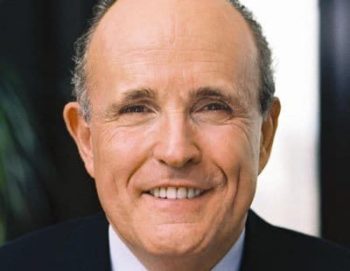A federal judge in New York dismissed Rudy Giuliani’s bankruptcy case on Friday, opening the door for numerous creditors, including two former Georgia election workers, to pursue and potentially seize his assets. U.S. Bankruptcy Judge Sean Lane in the Southern District of New York made this decision nearly seven months after Giuliani sought bankruptcy protection. The former New York mayor and personal attorney to Donald Trump filed for bankruptcy following a $148 million defamation judgment in favor of Ruby Freeman and Shaye Moss, whom Giuliani falsely accused of election fraud during the 2020 presidential election.
In a detailed 22-page order, Judge Lane cited Rudy Giuliani’s persistent failure to meet his reporting obligations and provide the necessary financial transparency required of a debtor in possession. The judge’s decision prohibits Giuliani from seeking bankruptcy protection for one year. This ruling highlights the judicial system’s demand for accountability and transparency from debtors seeking protection under bankruptcy laws.
Responses and Reactions
Ted Goodman, a spokesman for Giuliani, criticized the decision as an effort to punish the former mayor. He expressed confidence in Giuliani’s eventual vindication, asserting that the justice system would be restored. Lane’s ruling emerged amidst allegations that Giuliani used the bankruptcy proceedings to obscure details about his assets and avoid paying the former election workers.
The decision allows Freeman, Moss, and other creditors to pursue legal actions to recover money owed by Giuliani. It also reopens pending lawsuits that were previously frozen by the bankruptcy proceedings, including defamation suits by Dominion Voting Systems and Smartmatic, and a sexual harassment and wage theft claim by former Giuliani associate Nicole Dunphy. These cases, forming a committee of unsecured creditors, sought relief in the bankruptcy case, aiming for a transparent and fair resolution of Rudy Giuliani’s financial obligations.
Financial Mismanagement and Court Criticism
A committee of other creditors had pushed for the continuation of the bankruptcy case with the appointment of a trustee to oversee Rudy Giuliani’s finances. They argued this was necessary to gain a full and accurate picture of his financial situation after months of inconsistent and incomplete financial statements. However, Judge Lane rejected this proposal, doubting that Giuliani’s uncooperative behavior would change even with an outside trustee’s involvement.
The judge emphasized Giuliani’s failure to provide an accurate and complete financial picture throughout the case’s six-month duration. The judge’s ruling underscored Giuliani’s lack of transparency and his apparent efforts to stonewall the process. Lawyers for the creditors hired investigators, including former CIA and FBI officials, to uncover hidden assets and questioned individuals associated with Giuliani, such as My Pillow CEO Mike Lindell.
Future Legal and Financial Challenges
Rudy Giuliani’s financial troubles extend beyond his debts to Freeman and Moss. He claims to have approximately $11 million in assets but owes around $153 million to various creditors, including more than $3.7 million in unpaid legal fees and over $1 million in state and federal taxes. Despite listing his New York property for sale, Giuliani has resisted selling his Florida condo, arguing that its sale could render him homeless.
Creditors have consistently complained about Rudy Giuliani’s failure to file a complete and accurate picture of his net worth, as required in bankruptcy proceedings. They have sought detailed information on his businesses and investments, criticizing his repeated failures to meet court deadlines and filing incomplete financial disclosures. Giuliani’s legal team cited administrative struggles, including difficulties hiring an accountant, as reasons for these shortcomings.
Rudy Giuliani’s shifting legal strategies have complicated the case. Initially seeking Chapter 11 bankruptcy protection, he later requested reclassification under Chapter 7, which would involve liquidating his assets. His abrupt request to dismiss the bankruptcy case altogether came just before a hearing, drawing accusations of bad faith and further delaying tactics. Judge Lane’s decision to throw out the case reflects his belief that Giuliani would continue to evade financial transparency, underscoring the ongoing legal and financial challenges Giuliani faces.
Rudy Giuliani’s Legal Troubles Continue to Mount
Rudy Giuliani’s financial issues have been compounded by his growing legal problems. He has entered not guilty pleas to charges in Georgia and Arizona related to his alleged efforts to undermine the 2020 presidential election results. These legal battles have placed additional strain on his already precarious financial situation.
Further exacerbating his troubles, Giuliani was disbarred from practicing law in New York on July 2, and a board in Washington, D.C., has recommended his disbarment there as well. Despite these setbacks, Giuliani’s spokesperson, Ted Goodman, criticized the “voluminous and overly broad discovery requests” in the bankruptcy case and expressed confidence that Giuliani would ultimately be vindicated. However, the judge’s dismissal of his bankruptcy case and the accusations from creditors suggest that Giuliani’s path to resolving his financial and legal issues remains fraught with challenges.














